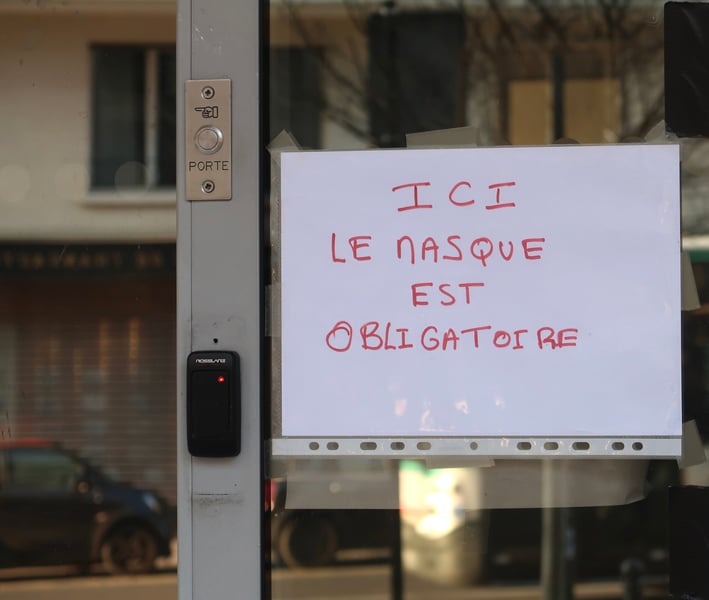MARSEILLE, France (CN) — The French pharmaceutical company Sanofi’s move to sell 50% of Opella, which produces the beloved painkiller Doliprane, to U.S. private equity firm CD&R has ignited widespread backlash across France’s entire political spectrum, while exposing the fragile underpinnings of health sovereignty as a global issue.
Doliprane — a brand name for acetaminophen — is the most popular painkiller in France. Its canary yellow box lines pharmacy walls. It seems like Doliprane is always the answer to any minor ailment, from a minor fever to a hangover. It holds comparable importance to Advil, aspirin, or its counterpart, Tylenol, in the United States.
But selling this drug to an American private equity firm represents more than a blow to the French ego. It has opened the debate on health sovereignty and some of the biggest issues behind it: state responsibility, employment, cheap labor and profit above all.
“When faced with these large multinational companies, even if their flag is French, their allegiance is to profit and not to one country or another — they don’t care,” Etienne Nouguez, a health sociologist and researcher at the National Center for Scientific Research, told Courthouse News.
The sale, announced in October, has sparked outrage across France’s political spectrum. Fabien Roussel, the communist party leader, said it was “shameful,” and “another symbol for the loss of our sovereignty.”
Extreme-right head Jordan Bardella, the protégé of Marine Le Pen, said, “The risks to our health sovereignty and to employment are considerable: It would be incomprehensible for the state to let this happen.”
Covid exposed the risks of relying on a medical supply chain from overseas. When France faced a surgical mask shortage, a planeload of masks ordered from China was “hijacked” by the United States at the last minute. The result was an embarrassing scuffle for Macron at a critical time for France.

In the aftermath of the pandemic, Macron vowed to build national sovereignty and recenter the production of medical supplies onto French territory.
Politicians have said that this sale highlights the dissonance between what the government says it will do and what happens in practice.
“There is also a question of national sovereignty, knowing that public health is one of the areas in which the state is taken to task, and the inability of the state to protect populations against the risks of diseases is seen as a major failure of the state,” Nouguez said. “So the fear of outsourcing is that production will go away, and that we can no longer influence supply, and that we will be served after all the rest — after the Asian markets, the American markets and so on.”
That Doliprane could fall into the hands of an American company adds salt to the wound.
“So there are two things that are terrible in the minds of many people in France — the fact that it is not the state that is buying, and the fact that it is a private equity fund, which is American,” Pierre-Yves Geoffard, an economist and research director at the Institutional Review Board, told Courthouse News. “We have the devil pretty much everywhere in people’s minds, so that generates a lot of anxiety.”
“There is a certain degree of chauvinism or in any case of fear; American private equity funds are presented as a bit of a Satan, even if in practice they are already reference shareholders of most large French companies,” Geoffard said.
Opella employs 1,700 people in France. Economy Minister Antoine Armand said the deal would include both carrots and sticks to enforce a commitment to keep most of Opella’s workforce in the country, but some are skeptical about how this would play out in practice.
“It is not specific to France, but in France there is a major deindustrialization of production, which is linked to economic issues,” Nouguez said. “The fact that it’s cheaper to produce in Asia and to move production is also linked to environmental issues, because the pharmaceutical industry is polluting.”
Nouguez pointed out that countries like France — which have heavy environmental regulation — can bypass ecological restrictions by moving production elsewhere.
“Suddenly the countries where this environmental regulation is less strong, typically India, China and so on, are attractive for these drugs,” he said.
The same goes for labor and production costs. Since these painkillers are cheap — a standard box of Doliprane costs roughly 2 euros in France — producers have to play on production costs to make a decent margin, Nouguez said. Cheaper labor is certainly a driving factor.
If the sale goes through, it will serve as a bitter reminder to many that profit takes precedence over political prominence or symbolic attachment.
“What really has value is not the drug, it’s not the active ingredient, it’s the brand,” Geoffard said. “It’s a Doliprane brand, it’s a very well-known brand in France to which many people are very attached.”